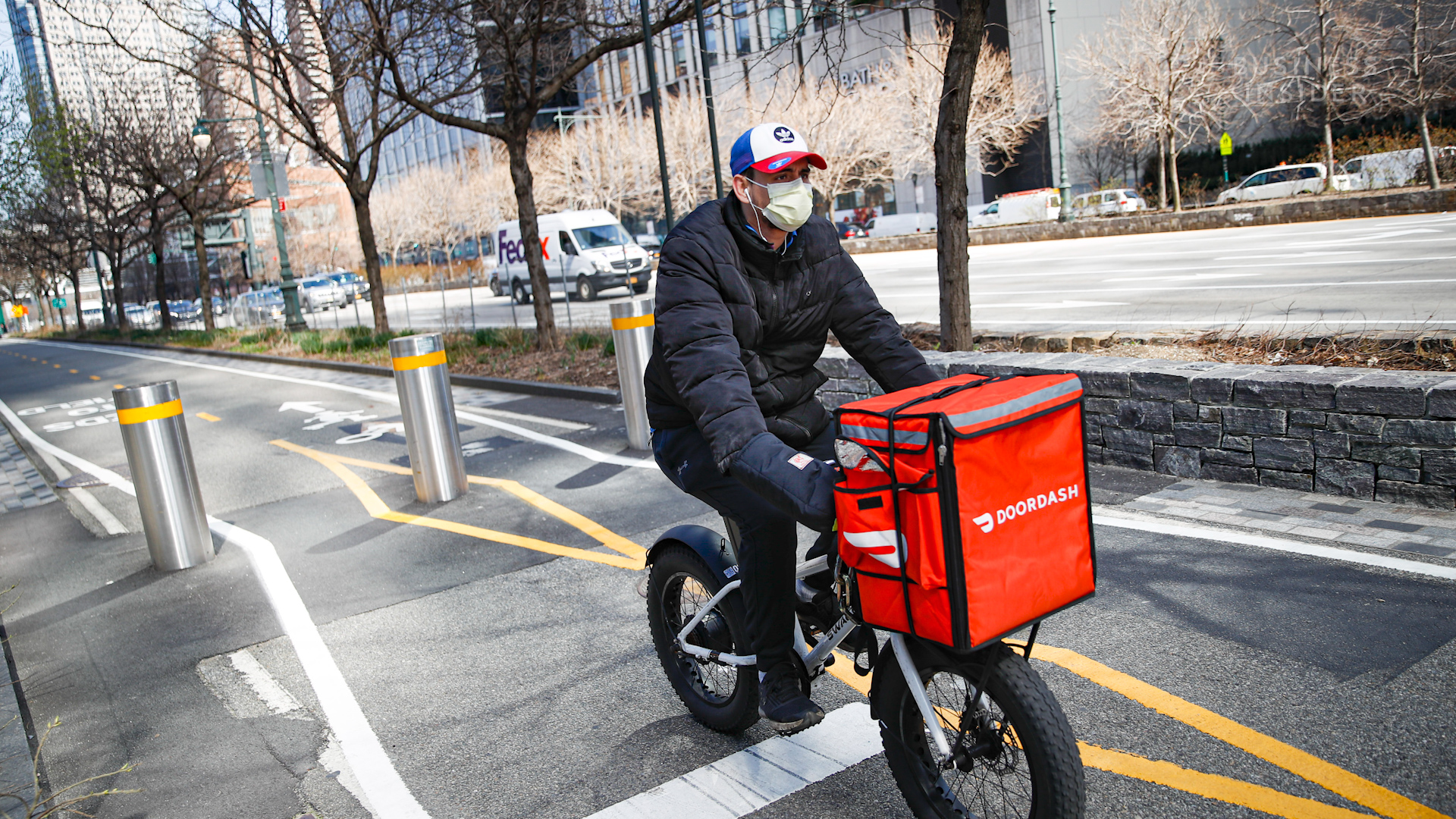- As the novel coronavirus continues to spread, more and more cities are escalating their tactics to keep the virus at bay.
- Cities have asked people to socially distance and, in some cases, to shelter in place.
- But some are not lucky enough to work from home. Dr. Eric Cioe-Pena, an emergency physician and the director of global health for Northwell Health, gave us some tips for staying safe at work.
- Dr. Pena says washing your hands is more effective than hand sanitizer, and recommends wiping down common areas like keyboards and phones.
- Visit Business Insider’s homepage for more stories.
Following is a transcript of the video.
Narrator: As the novel coronavirus continues to spread, more and more cities are escalating their tactics to keep the virus at bay, asking people to socially distance, and, in some cases, to shelter in place. But some are not so lucky to have the ability to work from home. Dr. Eric Cioe-Pena, an emergency physician and the director of global health for Northwell Health, gave us some tips for staying safe at work.
Eric Cioe-Pena: The No. 1 thing to do is wash your hands. Either 20 seconds with soap and water or with a hand sanitizer that’s greater than 60% alcohol, because the main mode of transmission is gonna be touching surfaces that someone has coughed or sneezed on and then touching your face. So, that’s your first line of defense, is handwashing.
So, comparing hand sanitizer to soap and water, if you have the ability to use soap and water, that’s your best bet. So, hand sanitizer is a quick way to disinfect your hands in between soap-and-water washes, but soap and water really does have a greater efficacy in washing away droplets, washing away viral particles, and removing any soil or contaminants on your hands where virus could be hidden underneath. Hand sanitizer essentially is a superficial clean, so if you’ve got no dirt and no grime on your hands and you use hand sanitizer, it is effective at killing most things that are on your hands, but anytime you have any type of dirt or anything else where something could be hiding underneath that layer of dirt, hand sanitizer isn’t gonna get it, but water and soap will. I also recommend, at the beginning of the day, wiping down areas that you’re gonna touch often in your work area. So, keyboards, phones, mouse I would disinfect with any household or business disinfectant would work.
One of the other ways to catch the virus is to be in close contact with other people. Being next to another human being for greater than two minutes within six feet who is sick and showing symptoms definitely is a risk. The idea right now is you wanna practice some social distancing between people so that if someone is sick, we're not within six feet of them as much as possible. The other thing is avoiding gatherings of, you know, greater than five people that aren't absolutely essential to business is probably a good temporary measure at this point.
Narrator: But social distancing is not always feasible, especially when your work involves person-to-person contact.
Cioe-Pena: So, the service industry is a tough area. They're especially tough because they also don't have any sick time off, and if they don't work they're not making money, so that's something that society, in general, we have to take a look at, because they really do have kind of a financial imperative to work even while sick. So, the worst thing someone in the service industry could do is work while sick. But the things that they can do to protect themselves: disinfect their hands, make sure that every time they're touching someone else's credit card, touching a check, touching something that another human being has touched in the course of their job, that before they do anything like, certainly, eat or touch their face, that they're disinfecting with soap and water or hand sanitizer.
The handshake is a tough thing 'cause it's really ingrained in our culture, right. I mean, you know, even now when I'm meeting people, part of me is, like, resisting the urge to extend my hand out and shake people's hands. So I think having something that's a gesture, the elbow is certainly, I think, the safer thing than the fist bump, just having that momentary contact with an area that's not gonna go anywhere near your face. You know, even just kind of a slight nod or a bow oftentimes will get kind of the job done.
We need to keep calm. We have to kind of take this with the appropriate level of seriousness, protect the people that are at risk of having worse outcomes, but the rest of us need to just kind of take the anxiety down one notch, realize that we're gonna get through this, it's gonna be here, it's gonna pass through our communities, and so we really just need to kind of do things that are smart, but try to avoid panic.
